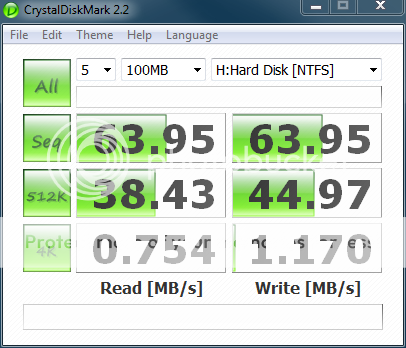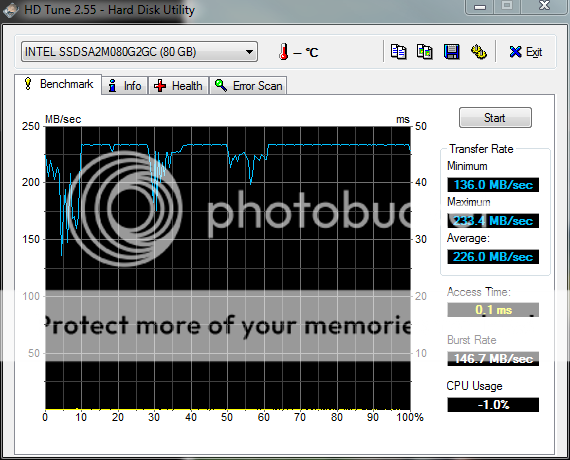I'd like to see more "proper" real-world benchmarks as well. I'd like to see a comparison of SSDs (particularly intel vs indilinx drives) for:
* Load-times for a full suite of different games
* Times for opening a large number of applications simultaneously, both from idle and immediately after boot
* Raw boot times
I'd also like to see each drive in single mode and in RAID-0 mode

Unfortunately, most reviews seem to focus on bandwidth values for random / sequential reads / writes, or on PCmark scores, which are hard to translate into real-world performance.
.
I know what you mean, there is one review at least that measure indilinx vs intel vs some others, including the corsair and whatever the lastest raptor is, gaming loading was maybe a 2second spread including the Raptor. Windows load was I think fastest on the Intel but unlike others, a one off load could take 2 mins for all I care, i'll go take a leak and come back.
The corsair, supposedly dramatically worse than both the main competitors, offered the same game load time, competitive windows load, and both the corsair and Indilinx were unsurprisingly seriously quicker than the Intel for copying large files, or even multiple files because the max write speed is simply so much higher.
People use pcmark as a way to choose how games/windows will work, but thats flawed as benchmarks are all writen by a SINGLE company, with their own style of coding that will be used across the board. In the real world the same app writen by two different people that work in different ways behind the scenes, could work very differently on different hardware.
A single benchmark that tries to recreate performance of several apps won't give a realistic view. Intel kills in that, yet in every real world test I've seen, its no different.
Frankly some games will load faster on the intel, and the indilinx and sdd's in some games will just all be massively ahead of a raptor, but not all games.
I do want to see a review that shows 10 different games, diff types of games, and loads of apps, and as you said, I have no idea how 2x 64gb compares to a single 128gb, or 2x128gb for that matter.
THe thing to take is, when you see the Seagate crystal mark benchy above, while the INtel is streets ahead of it, even a crap SSD will be 5-10times faster on the 4kb write, and maybe 20-30times as fast on the 4kb read.
Thats where ssd's show most of their advantages, quick loading, lack of hanging when trying to do a few different things at once. They simply don't get bogged down so everythings smoother and quicker.
Right now I'm unsure which way to go, 2x64gb or a single 128gb, could go nuts and buy them all, compare and sell on the spare drive(s).







 The current reviews and comparisons all seem a bit hit and miss or very exotic setups - and not much in between.
The current reviews and comparisons all seem a bit hit and miss or very exotic setups - and not much in between.

